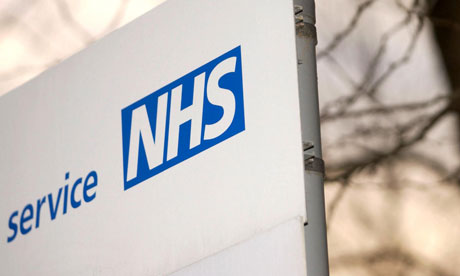

The controversial data-sharing project (Care.data) is being terminated by the Department of Health in England.
The scheme, which aimed to allow GP and hospital data stored and exchanged within the NHS as well as possibly with third parties, has been heavily delayed over privacy concerns from patient rights groups. It was supposed to launch way back in 2014.
The department made its decision amid the publication of two reviews on data security in English healthcare by Dame Fiona Caldicott and the Care Quality Commission. Both reviews made recommendations about safeguarding patient data, and dealing with NHS data breaches.
The reviews also recommended the replacement of outdated IT systems, and recommend an opt-out system so patients can say no to confidential or personal health data being used for anything beyond their direct care.
Google’s DeepMind machine-learning business for example was this week granted access to detailed data from the Royal Free NHS Trust.
But in the end, the department opted to axe the Care.data scheme.
“In light of Dame Fiona’s recommendations, NHS England has taken the decision to close the care.data programme,” it said. “However, the government and the health and care system remain absolutely committed to realising the benefits of sharing information, as an essential part of improving outcomes for patients. Therefore this work will now be taken forward by the National Information Board, in close collaboration with the primary care community, in order to retain public confidence and to drive better care for patients.”
The closure of the scheme has been welcomed by pressure group Med Confidential.
“One toxic brand may have ended, but Government policy continues to be the widest sharing of every patient’s most private data,” said Phil Booth, Coordinator of medConfidential.
“Launched this morning, the Government’s consultation on consent asks the public to comment on how Government should go about ignoring the opt outs that patients requested,” he said. “The programme did exist, and whatever data the Government may wish to continue to sell to their commercial friends, patients dissented from data about them being shared. Their wishes must be honoured.”
The NHS is a well known culprit when it comes to data breaches and leaks. Last December a Freedom of Information (FoI) request revealed some very worrying business practices within the NHS concerning customer data.
The FoI revealed that NHS staff at almost two thirds of NHS Trusts regularly accessed organisational information, including patient records, from their own personal smartphone or tablet.
And matters only look to get worse, as 92 percent of NHS Trusts plan to incorporate smartphones, tablets or the use of applications to allow employees to access shared content by 2018, as part of the NHS’ paperless initiative.
Last September a study published in journal BMC Medicine found that a number of mobile device-based health apps don’t properly secure customer data and have poor privacy standards. That was despite many of these apps being certified as clinically safe and trustworthy by the UK NHS Health Apps Library.
Do you know all about public sector IT – the triumph and the tragedy? Take our quiz!
American space agency prepares for testing of Boeing's Starliner, to ensure it has two space…
As UK and Europe develop closer military ties, European Commission says it will invest €1.3…
Zuckerberg seeks to revive Facebook's original spirit, as Meta launches Facebook Friends tab, so users…
Notable development for Meta, after appeal against 2021 WhatsApp privacy fine is backed by advisor…
First sign of shake-up under new CEO Lip-Bu Tan? Three Intel board members confirm they…
Trump's nominee for SEC Chairman, Paul Atkins, has pledged a “rational, coherent, and principled approach”…